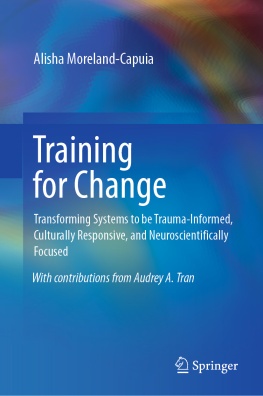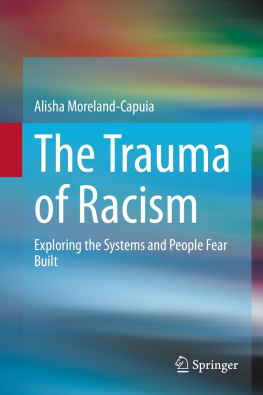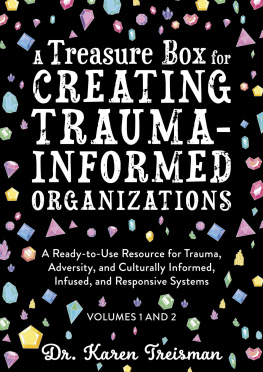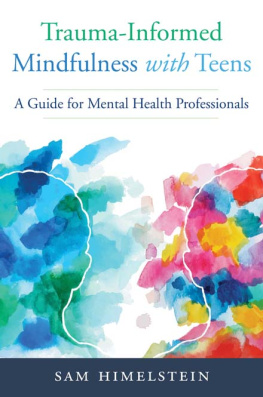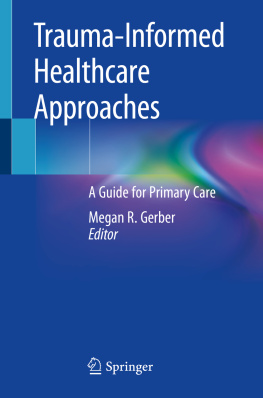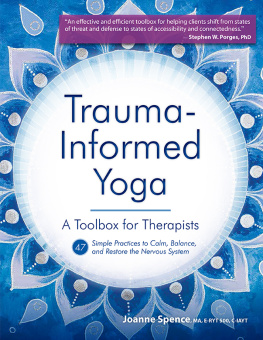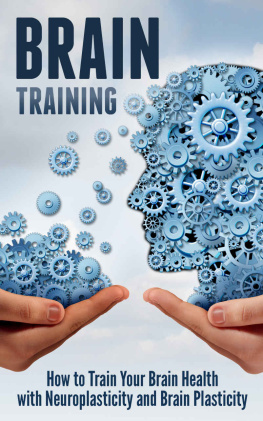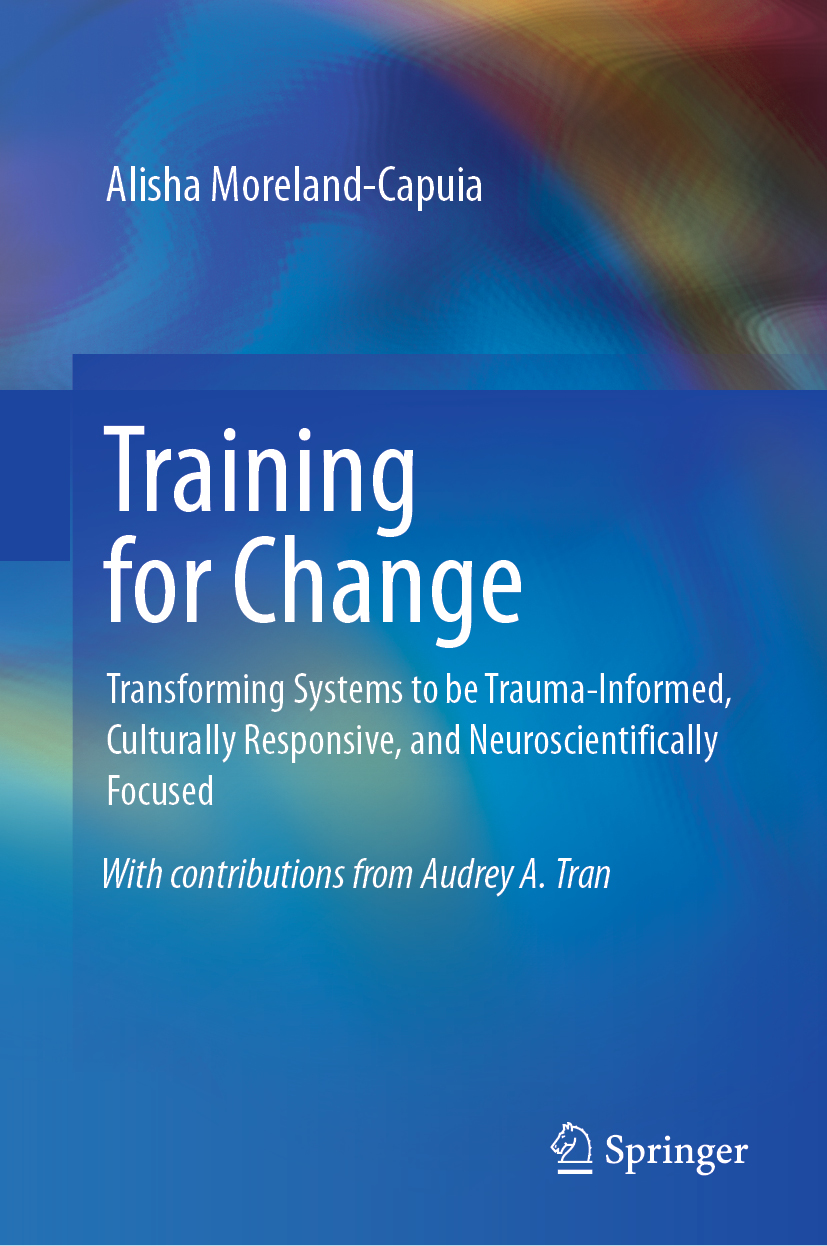Alisha Moreland-Capuia
Training for Change Transforming Systems to be Trauma-Informed, Culturally Responsive, and Neuroscientifically Focused
With contributions from Audrey A. Tran
Alisha Moreland-Capuia
Oregon Health & Science University (OHSU), Avel Gordly Center for Healing, Portland, OR, USA
ISBN 978-3-030-19207-5 e-ISBN 978-3-030-19208-2
https://doi.org/10.1007/978-3-030-19208-2
Springer Nature Switzerland AG 2019
This work is subject to copyright. All rights are reserved by the Publisher, whether the whole or part of the material is concerned, specifically the rights of translation, reprinting, reuse of illustrations, recitation, broadcasting, reproduction on microfilms or in any other physical way, and transmission or information storage and retrieval, electronic adaptation, computer software, or by similar or dissimilar methodology now known or hereafter developed.
The use of general descriptive names, registered names, trademarks, service marks, etc. in this publication does not imply, even in the absence of a specific statement, that such names are exempt from the relevant protective laws and regulations and therefore free for general use.
The publisher, the authors and the editors are safe to assume that the advice and information in this book are believed to be true and accurate at the date of publication. Neither the publisher nor the authors or the editors give a warranty, expressed or implied, with respect to the material contained herein or for any errors or omissions that may have been made. The publisher remains neutral with regard to jurisdictional claims in published maps and institutional affiliations.
This Springer imprint is published by the registered company Springer Nature Switzerland AG
The registered company address is: Gewerbestrasse 11, 6330 Cham, Switzerland
I have a robust, loving and supportive network in my husband Daniel and children Julia, Daniel Jr. and Olivia. They gave me over 375 h of uninterrupted time to write this textbookI could not have completed the task absent their encouragement and selflessness. They believe in me and the ideas shared in this textbook. They, like me, believe that this textbook provides a fresh perspective on tough issues and has the capacity to positively impact systems for change. I say to my beloved husband and children, thank you, thank you, thank you! I hope I make you proud.
Acknowledgements
My gratitude runs deep and wide. I wish to start by thanking the Multnomah County Department of Community Justice (DCJ) Parole/Probation Officers and Junior Court Counselors (JCCs) who welcomed, learned from and with me and who ultimately made major positive changes for the system in which they serve. Thank you Keith Murphy, Brie Murphy, Silvia Gomez, Dennis Moore, Erik Zilz, Kate Desmond, Erika Preuitt, and the research and planning team at Multnomah County DCJ in Portland, Oregon.
Ive had the privilege of working with some of the best human beings at Oregon Health & Science University (OHSU). John Hunter, thank you for encouraging me to write and helping me make important connections. Charles Thomas, I appreciate the time you spent editing many of my publications and inspiring me to just write. To the Psychiatry Department at OHSUthank you for your provision. To every OHSU medical student Ive had the honor to teach and learn fromthank you.
To my family, sisters, brothers, mother, grandmother, uncles, and auntsthank you for your unwavering love.
To every teacher, professor, community member, and mentor that touched my life and saw greatness in me (you know who you are)thank you.
Finally, a big thank you to Audrey Tran! Audrey is the illustrator for this textbook and is currently a second year medical student at OHSU. Audrey is known for advocating for health policy and employing music and writing as tools to optimize patient communication. She is a leader. I am honored to share this moment with her and look forward to a continued partnership.
About the Illustrator
Audrey A. Tran is a second year medical student at the Oregon Health and Science University School of Medicine.
She received her B.A. at Wellesley College, magna cum laude, in Biochemistry with a minor in Music. In college, her passion for exploring the sciences was coupled with a passion in sharing what she had learned through formal peer tutoring. She spent two years post-grad continuing stem cell and genome editing research in Boston, MA, where she worked along with brilliant scientific minds. It was in Boston where she learned about the importance of advocacy at the intersection of science, racial justice, and womens rights.
In medical school, her interest in medical education led to a style of tutoring that incorporates intuitive, illustrative, and color-coded study guides. This style is observed, appreciated, and thoughtfully integrated throughout this textbook. To stay creative, she is in a medical school rock band, writes music, and can likely be found harmonizing to popular songs.
Contents
About the Author
Dr. Alisha Moreland-Capuia
grew up in Portland, Oregon. She graduated from Stanford University in 2002 with a B.S. in biological sciences and a minor in urban studies. She earned her doctor of medicine from the George Washington University School of Medicine in 2007. She completed four years of psychiatry residency and an addiction fellowship at Oregon Health and Science University. She is double board certified in addiction and general adult psychiatry.
She has trained judges, parole officers, school teachers, community members, and faith-based institutions in the areas of cultural responsivity, brain development, and trauma-informed approaches and practices. She built a program entitled Healing Hurt People Portlanda hospital-based, trauma-informed, community-focused youth violence prevention program that serves young males of color between the ages of 15 and 33 whove been stabbed, shot, and or assaulted.
She has committed her professional career to changing systems to optimally serve youth. Dr. Alisha is also the Co-Founder of The Capuia Foundation and believes in serving the global community. Through the Foundation, she and her family built a primary care clinic in Angola, Africa, which provides subsidized primary and preventative care services for Angolans. Annually, she travels to Angola, Africa to serve patients in the family-built clinic. The establishment of the clinic inspired the construction of roads and improved access to water, lights, and jobs for the surrounding Angolan community. Dr. Alisha has a history of building with people and community.
Her working motto is that systems change when people change and people change when they feel something. Dr. Alisha has passionately committed herself to working at the people level (getting them to connect with their feeling space, also known as the birthplace for change) as a means of systems change.
Shes had the privilege of bearing witness to people and systems changing.
This textbook is most about people-individual work and change that results in system work and change. Changed people change systems.
Springer Nature Switzerland AG 2019

